

Helaas weer geen ondertitels.
Ø£Ùرؚاء اÙÙا؊ؚ اÙسÙÙ [ ٠ضر اÙجÙاؚ٠] إعترÙÙا صراØØ© ؚإرتÙاؚÙ٠٠جزرة Ø٠اÙعا٠٠ÙÙÙددÙ٠ؚاÙ٠زÙد
Familie van de soennitische politicus Salih Al-mutlaq geven in deze video openlijk toe dat ze achter de terroristische aanval op Hay al Amil in 2013 waar 55 (meeste jongeren en studenten) zijn omgekomen in een cafe. Salih Al-Mutlaq is er zelf ook bij, maar het is onduidelijk wat hij zelf zegt.
De man die staat te schreeuwen geeft het toe. Hij was emotioneel omdat dit bij een begrafenis van 1 of andere sjeikh is. Sommige mensen proberen hem stil te krijgen, maar er staat ook iemand bij die zegt "Laat hem praten, het maakt toch niks meer uit."
Daarna begint de menigte "dood aan de sjiieten" te schreeuwen.
Ø£Ùرؚاء اÙÙا؊ؚ اÙسÙÙ [ ٠ضر اÙجÙاؚ٠] إعترÙÙا صراØØ© ؚإرتÙاؚÙ٠٠جزرة Ø٠اÙعا٠٠ÙÙÙددÙ٠ؚاÙ٠زÙد
Familie van de soennitische politicus Salih Al-mutlaq geven in deze video openlijk toe dat ze achter de terroristische aanval op Hay al Amil in 2013 waar 55 (meeste jongeren en studenten) zijn omgekomen in een cafe. Salih Al-Mutlaq is er zelf ook bij, maar het is onduidelijk wat hij zelf zegt.
De man die staat te schreeuwen geeft het toe. Hij was emotioneel omdat dit bij een begrafenis van 1 of andere sjeikh is. Sommige mensen proberen hem stil te krijgen, maar er staat ook iemand bij die zegt "Laat hem praten, het maakt toch niks meer uit."
Daarna begint de menigte "dood aan de sjiieten" te schreeuwen.


wie si die gast met die tulband?quote:Op zondag 15 februari 2015 18:22 schreef Peunage het volgende:
Asa'ib Ahl Al-Haq (sjiitische militie) hebben de daders van Spyker (massa slachting van 1700 ongewapende cadetten van het leger) te pakken gekregen.
Ik heb Hem niet uit vrees voor de hel noch uit liefde voor het paradijs gediend, want dan zou ik als de slechte huurling zijn geweest; ik heb hem veeleer gediend in liefde tot Hem en in verlangen naar Hem.
-Rabia Al-Basri
-Rabia Al-Basri


Dat is Qais al-Ghazali, leider van Asaa'b Ahl al-Haq. Hij vertelt dat ze die terroristen te pakken hebben gekregen.quote:


twitter:KirkukNewsDesk twitterde op zondag 15-02-2015 om 16:02:21 #Kirkuk Governor ordered the destruction of the 4 swords statue in Arafa, a symbol of the Ba'ath Party #TwitterKurds http://t.co/ZKbRhWYpbJ reageer retweet
Say what?


waarom nu pas? is alweer een tijdje terug dat saddam er niet meer isquote:Op maandag 16 februari 2015 11:06 schreef UpsideDown het volgende:
[ afbeelding ]twitter:KirkukNewsDesk twitterde op zondag 15-02-2015 om 16:02:21 #Kirkuk Governor ordered the destruction of the 4 swords statue in Arafa, a symbol of the Ba'ath Party #TwitterKurds http://t.co/ZKbRhWYpbJ reageer retweet
[ afbeelding ]
Ik heb Hem niet uit vrees voor de hel noch uit liefde voor het paradijs gediend, want dan zou ik als de slechte huurling zijn geweest; ik heb hem veeleer gediend in liefde tot Hem en in verlangen naar Hem.
-Rabia Al-Basri
-Rabia Al-Basri


Geen idee, misschien omdat Kirkuk niet meer in Arabische handen is en ze dit kunnen doen. En omdat het nu weer actueel is, Baathisten die zich verzetten tegen de staat.quote:Op maandag 16 februari 2015 11:33 schreef Slayage het volgende:
[..]
waarom nu pas? is alweer een tijdje terug dat saddam er niet meer is
Say what?


our khalifa 
twitter:sayed_ridha twitterde op maandag 16-02-2015 om 12:18:02 “@umm_alabbas: Al Huwaysh near Samarrā the birthplace of our Khalifā Ibrahīm is liberated and in the hands of Islamic State. Alhamdullilah” reageer retweet
Ik heb Hem niet uit vrees voor de hel noch uit liefde voor het paradijs gediend, want dan zou ik als de slechte huurling zijn geweest; ik heb hem veeleer gediend in liefde tot Hem en in verlangen naar Hem.
-Rabia Al-Basri
-Rabia Al-Basri


Zonder Hezbollah kan er niet geregeerd worden, maar ook zonder de Soenieten of Christenen niet. Hezbollah blijft vooral in Hezbollah wijken/gebieden, ik denk niet dat ze in Tripoli echt op Hezbollah zitten te wachten.quote:Op zondag 15 februari 2015 19:17 schreef reza1 het volgende:
[..]
Zonder Hezbollah kan er niet geregeerd worden in Libanon, ook kunnen er geen belangrijke beslissing worden genomen zonder de toestemming van Hezbollah.
https://en.wikipedia.org/wiki/2008_conflict_in_Lebanon
En veel christenen steunen Hezbollah ook.
[..]
Dat kan je ook zeggen over de Amerikaanse, Turkse of elk ander land relatie met de KRG.
[..]
De Houthi's hebben inmiddels het regime afgezet en de macht overgenomen:
https://en.wikipedia.org/wiki/2014%E2%80%9315_Yemeni_coup_d'%C3%A9tat Dus die interesse hebben ze zeker wel.
Veel niet-sjiieten steunen de Houthi's ook.
[..]
En het levert ze veel ervaring op. Hezbollah is veel sterker dan in 2006, dat zeggen zelfs de zionisten.
[..]
Dat hebben ze wel dergelijk, zonder de steun van Iran krijgt Hamas geen wapens.
Christenen(net als de meeste burgers) in Lebanon willen gewoon rustig leven of dat nou onder Hezbollah/Saddam/assad/Israel/Sisi is zal hun een moer wezen.
En ik zei toch dat barzani en talabani gaan waar het geld is. Nu zijn het turkije en iran, maar in de toekomst kan dat anders liggen. Dat weet Iran ook heel goed.
Dus Houthi’s hebben interesse om heel Jemen te veroveren? Sanaa wordt toevallig omringd door Houthi gebied maar veel succes met het belegeren van Aden. Zuidelijke Jemenieten willen onafhankelijkheid en die zitten dus niet op de Houthis te wachten. Ook verslaan de Houthi’s Al Qaeda op veel plekken niet. Houthi’s zijn daarom ook niet gek en blijven rustig zitten bij de plekken die ze veroverd hebben.
Er zijn ook veel niet-soenieten die Saddam steunden, dus je kan wel bij elke sijietische groep zeggen dat niet sijieten die groepen ook steunen maar dat is geen sterk argument.
Hezbollah veel sterker dan 2006? Dat is hypothetisch, en ze zullen veel ervaring krijgen maar voor wat? Je kan niet Al-Nusra, Isis, FSA, etc. met de Israelische leger vergelijken. Ze hebben niet veel aan die ervaringen, of gaan ze hun ervaringen gebruiken om Israelische drones neer te schieten?
Nogmaals Iran is een machtige speler in het MO, maar alleen in Sijietische gebieden.


oops
[ Bericht 99% gewijzigd door Slayage op 16-02-2015 14:11:32 ]
[ Bericht 99% gewijzigd door Slayage op 16-02-2015 14:11:32 ]
Ik heb Hem niet uit vrees voor de hel noch uit liefde voor het paradijs gediend, want dan zou ik als de slechte huurling zijn geweest; ik heb hem veeleer gediend in liefde tot Hem en in verlangen naar Hem.
-Rabia Al-Basri
-Rabia Al-Basri


ik switch regelmatig tussen de twee topics, gaat wel eens foutquote:Op maandag 16 februari 2015 14:04 schreef Frutsel het volgende:
[..]
was dit niet voor een ander topic bedoeld?
Ik heb Hem niet uit vrees voor de hel noch uit liefde voor het paradijs gediend, want dan zou ik als de slechte huurling zijn geweest; ik heb hem veeleer gediend in liefde tot Hem en in verlangen naar Hem.
-Rabia Al-Basri
-Rabia Al-Basri


netenyahu wist waar hij het over had!
twitter:YousefMunayyer twitterde op vrijdag 13-02-2015 om 16:49:07 "If you take out Saddam's regime I guarantee you it will have enormous positive reverberations on the region" - @netanyahu to Congress 2002 reageer retweet
Ik heb Hem niet uit vrees voor de hel noch uit liefde voor het paradijs gediend, want dan zou ik als de slechte huurling zijn geweest; ik heb hem veeleer gediend in liefde tot Hem en in verlangen naar Hem.
-Rabia Al-Basri
-Rabia Al-Basri


Positief voor de zionistische beweging ja.
"But the age of chivalry is gone; that of sophisters, economists, and calculators has succeeded, and the glory of Europe is extinguished forever."- Edmund Burke


twitter:Tom_Antonov twitterde op maandag 16-02-2015 om 14:23:48 #Peshmerga wheel chair with italian anti tank 80mm Folgore :-)#Italy #Iraq #IS http://t.co/MBgDfVtw6U reageer retweet
whehe
Say what?


Lmaoquote:Op maandag 16 februari 2015 15:00 schreef UpsideDown het volgende:
[ afbeelding ]twitter:Tom_Antonov twitterde op maandag 16-02-2015 om 14:23:48 #Peshmerga wheel chair with italian anti tank 80mm Folgore :-)#Italy #Iraq #IS http://t.co/MBgDfVtw6U reageer retweet
whehe


ISIL head’s uncle nabbed in Iraq: Sources
quote:Iraqi security forces have apprehended two senior ISIL commanders believed to be relatives of the terrorist group’s leader, Ibrahim al-Samarrai aka Abu Bakr al-Baghdadi, Iraqi security sources say.
The arrests were made on Sunday following a security operation near the city of Samarra in Salaheddin Province, Iraq’s state-owned television cited an unnamed security source as saying.
“A group from the Regiment Special Assignments was able to arrest Baghdadi’s uncle, named Saleh Ibrahim Abdulmomen and niece’s husband Dhiya Nouri Sadoun,” the source from the southern Dhi Qar governorate’s police said
Last December, Lebanese Interior Ministry announced that the young daughter of Baghdadi along with her mother was held in the country.
On December 2, 2014, Lebanon’s security officials said they had detained the ISIL head’s wife and son at a border crossing with Syria. However, the Iraqi government later said she was not married to Baghdadi.
Baghdad said the woman, identified as Saja al-Dulaimi, was the daughter of a member of the al-Qaeda-affiliated al-Nusra Front in Syria.
A day later, Lebanon’s Interior Minister Nohad Machnouk said Dulaimi is not Baghdadi's wife currently, adding, “She has been married three times: first to a man from the former Iraqi regime, with whom she had two sons.”
He further said that she was married to Baghdadi several years ago “for three months and she had a daughter with him.”
The Lebanese minister noted that DNA tests on her and the daughter confirmed that she is the mother of the girl who is Baghdadi's “daughter, based on DNA from Baghdadi from Iraq.”
The ISIL terrorists currently control large areas of Iraq and Syria. The group sent its militants into Iraq in June 2014, seizing large parts of land straddling the border between Syria and Iraq.


twitter:rConflictNews twitterde op dinsdag 17-02-2015 om 10:15:34 #ISIS captures 250 Iraqi Soldiers. #Iraq - @M_Seloom http://t.co/6XGp2OIvX4 reageer retweet


Oh nee he..... Speicher 2.0quote:Op dinsdag 17 februari 2015 10:23 schreef Houtenbeen het volgende:
twitter:rConflictNews twitterde op dinsdag 17-02-2015 om 10:15:34 #ISIS captures 250 Iraqi Soldiers. #Iraq - @M_Seloom http://t.co/6XGp2OIvX4 reageer retweet
-


Hoax.quote:Op dinsdag 17 februari 2015 10:23 schreef Houtenbeen het volgende:
twitter:rConflictNews twitterde op dinsdag 17-02-2015 om 10:15:34 #ISIS captures 250 Iraqi Soldiers. #Iraq - @M_Seloom http://t.co/6XGp2OIvX4 reageer retweet
basnews


twitter:NewsOnTheMin twitterde op dinsdag 17-02-2015 om 13:47:50 Iraqi Police chief says ISIS burned to death 45 people in the western Anbar town of al-Baghdadi. (@yeh1a)” reageer retweet


Hezbollah engaged in fighting ISIL in Iraq, Nasrallah says
quote:The head of Hezbollah says the Lebanese resistance movement has been fighting the ISIL Takfiri group in Iraq.
“We may not have spoken about Iraq before, but we have a limited presence because of the sensitive phase that Iraq is going through,” Nasrallah said on Monday in a speech delivered in commemoration of Hezbollah’s martyrs, Sheikh Ragheb Harb, Sayyed Abbas al-Mousawi and Hajj Imad Moughhnieh, in Sayyed al-Shuhadaa Complex in Dahiyeh, located in the southern suburb of the Lebanese capital Beirut.
The Iraqi army along with volunteer forces and tribesmen are fighting against the ISIL terrorist group which currently controls large areas of Iraq and Syria. The group sent its militants into Iraq in June 2014, seizing large parts of land straddling the border between Syria and Iraq.
Fighters from Lebanon’s Hezbollah resistance movement have been backing the Syrian army in the fight against the Takfiri militants operating inside Syria.
“I call for those who are urging us to withdraw from Syria to join us in our fight in Syria. Let's go to Iraq and everywhere to face off this threat because this is the right way to defend Lebanon,” Nasrallah said.
Jordan's duplicity
Nasrallah further criticized Jordan’s double standards in the fight against terrorism, saying that all terrorist groups follow the same mentality.
"Jordan cannot fight ISIL in Iraq and support al-Nusra in Syria, terrorist groups are all faces of the same coin."
The al-Qaeda liked al-Nusra Front and the ISIL terrorist group have "the same essence, ideology, culture and methodology," the head of Hezbollah said, adding, "The only difference between them was over leadership, but they are essentially one and the same."
"All the Takfiri currents must be fought, without distinction," he further noted.
Nasrallah’s remarks came as Jordan has vowed to intensify airstrikes against ISIL strongholds following the immolation of a Jordanian pilot held hostage by the terrorist group.
Several Arab countries, including Jordan, are taking part in the US-led military coalition that has purportedly been targeting ISIL positions in Syria without any authorization from Damascus or a UN mandate.
This is while the same Arab countries have been accused of supporting the Takfiris in Syria and Iraq, where the ISIL terrorists have been wreaking havoc.
"How can some countries in the (Persian) Gulf take part in the (US-led) international coalition against Daesh, while giving money and weapons to the al-Nusra Front... How is that logical?" Nasrallah added.
Bahrain regime 'terrified'
Nasrallah also described the government in Bahrain as a “terrified” regime, saying Hezbollah supports the Bahraini people.
“There is a terrified and weak government in Bahrain that fears any word of right, it even threatens to expel the Lebanese,” Nasrallah said.
Nasrallah slammed the countries that criticize Hezbollah’s stance on the developments in Bahrain, adding those arm militants, including ISIL, in Syria cannot criticize Hezbollah’s position on Bahrain.
“We did not call for toppling the regime in Bahrain, we only supported those who were calling for dialogue,” he further noted.
On January 9, Nasrallah highlighted the peaceful nature of anti-regime protests in Bahrain during a ceremony marking the birthday of Prophet Mohammad.
The Hezbollah leader further slammed the detention of Bahraini opposition leader, Sheikh Ali Salman, last month.
“The people of Bahrain have legitimate rights. They decided to launch peaceful revolution in contrary to other movements in the world. They are shot but they didn't shoot (a bullet). They were killed on roads, but they didn't kill anyone and held no knife,” Nasrallah said.
In a letter posted on Twitter on January 12, dozens of Bahraini activists praised Nasrallah’s support for their uprising and said the Lebanese resistance movement “didn’t hesitate to stand by our demands of justice, freedom and dignity”.
Dozens of Bahrainis used the hashtag #شكرا_لنصر_الله (Thanks_to_Nasrallah) in their Tweets.
“You always stand by the oppressed people in the world. And your support to the Bahraini people is because that you know very well we are righteous people who are abandoned by the political regimes and the governments which don’t care but for its interests,” the Bahraini activists addressed Nasrallah.
Since mid-February 2011, thousands of protesters have been holding held numerous rallies in the streets of Bahrain, calling for the Al Khalifa royal family to relinquish power.
The Manama regime has, however, responded to the peaceful protest rallies by launching a heavy-handed crackdown on demonstrators and political dissidents.
Bahrain has come under harsh criticism by many human rights groups for brutal clampdown on peaceful gatherings and numerous cases of human rights violations.
Yemen’s Houthis rightful
The head of Hezbollah praised the Houthi movement in Yemen for their contribution to restrain the expansion of Takfiri groups in the region.
He further described the Yemen’s Shia Ansarullah movement as “rightful”, “brave” and “wise”.
Over the past months, al-Qaeda militants have frequently carried out attacks on Yemen’s security forces. The militants have been also engaged in battles with Ansarullah.
In September 2014, Ansarullah fighters gained control of the capital city of Sana’a, following a four-day battle with army forces loyal to General Ali Mohsen al-Ahmar, the half-brother of the country’s former dictator, Ali Abdullah Saleh.
The Ansarullah revolutionaries say the Yemeni government has been incapable of properly running the affairs of the country and providing security.
Israel ISIL's sole beneficiary
The leader of the Lebanese resistance movement further noted that Israel is the only entity in the region of the Middle East that benefits from the ISIL Takfiri group.
“All world…consider ISIL a huge threat, except Israel,” Nasrallah said. “ISIL agenda had immensely served the Israeli."
ISIL against Islam and Christianity
Nasrallah condemned execution of Egyptian Coptic Christians by ISIL Takfiris Libya, noting, “We extend our condolences to the Egyptian people and the Coptic Church, this crime has affected both Islam and Christianity.”
The ISIL Takfiri terrorists released a five-minute video on Sunday showing the beheading of 21 Egyptian Coptic Christians kidnapped in Libya.
The video showed the handcuffed hostages dressed in orange jumpsuits, similar to previous ISIL victims, kneeling down along the seaside near the Libyan capital city of Tripoli.
The ISIL had earlier published the photos of the 21 Egyptian workers, claiming that the pictures were taken moments before their decapitation.
The victims, whose photos were published in the latest online edition of the ISIL magazine Dabiq, were reportedly abducted in the Libyan coastal city of Sirte in two attacks in December last year and January.


Iran arms exports to Iraq tolerated in fight against Isis says report
quote:A bulletin from the Expediency Council, a state body chaired by influential former president Akbar Hashemi Rafsanjani, has offered rare insight into Iran’s strategic thinking over Iraq.
The report, from the council’s Centre for Strategic Research, entitled Concerns about Iraq and Considerations for the Future, has not been widely publicized. The author, Hassan Ahmadian, is an analyst at the council.
One “positive event of major importance” highlighted by Ahmadian is the west’s acceptance of Iranian weapons sales to Iraq insofar as they contribute to the broader struggle against the Islamic State group (Isis), despite a United Nations embargo on Iranian arms exports. But the report also warns that a weakening of Isis will lead the west one again to question Iran’s role.
Expressions of concern over Iran’s role against Isis by the United States have been muted. It “would raise serious concerns,” Jennifer Psaki, state department spokeswoman, said last year. Passed in 2007, UN Security Council Resolution 1747 bans Iran’s sale or export of heavy arms.
Iranian officials have never confirmed the extent of arms supplies. However, a figure of $16bn was given in January by Mehdi Tayeb, head of the Ammar base, a body set up to respond to the alleged “soft war” of the US against Iran in the wake of unrest after the disputed 2009 presidential election. Speaking in the Emam Javad mosque in Tehran on 19 January, Tayeb said this was the amount supplied since Isis’ “first attacks”, possibly referring to the group’s offensive last June when it seized a swathe of Iraq including the northern city of Mosul.
This confirms a huge increase in the flow of arms from Iran since Reuters in February last year acquired evidence of $195m in Iranian weapon supplies including mortars, tank parts, artillery, night-vision goggles and wireless communications equipment.
The Expediency Council bulletin reflects a growing sense in Iran that its role in Iraq is being perceived more favourably. As well as citing a relaxed western attitude towards arms supplies, it finds an increasing regional and global acceptance of the Quds force, the overseas arm of the IRGC (Islamic Revolutionary Guard corps). The report points out the western media are less inclined to identify the Quds force’s activities as “terrorism”, and that several western officials have requested meetings with its leader General Qassem Suleimani.
The report suggests the more favourable evaluation of Iran by foreign powers has also resulted from Tehran’s work last summer in negotiating the transition from Nouri al-Maliki to Haidar al-Abadi as prime minister, and from its “unprecedented” role in bringing at least a temporary solution to problems between Iraqi Kurdistan and Iraq’s central government.
But the bulletin also highlights recent developments in Iraq it says threaten Iranian interests. One “serious challenge” is Iraq’s improving relations with other regional states, including Saudi Arabia and Turkey. The bulletin emphasises that while Iraq has been the main source of assistance to Iraq against Isis, Turkey and Saudi Arabia are now taking advantage of Iraq’s security needs.
The report also considers a request – apparently made discretely by Iraq – for discussions over border arrangements. This has been a sensitive issue since the 1975 Algiers Accord, in which Iraq made a concession in agreeing the southern border as the thalweg, or deepest channel, of the Shatt al-Arab waterway (known to Iranians as Arvand Rud): Saddam Hussein revoked the agreement in 1980 as he launched an eight-year war with Iran, but it was restored as part of the ceasefire in 1988.
The bulletin identifies a further challenge in Iraq’s steps toward establishing a Sunni national guard to restore some Sunni Arab influence in a Shia-dominated political landscape, and points out the US is supporting the guard’s formation and training Arab Sunni tribes with help from Jordan. The report suggests such a plan could weaken the control of Iraq’s central government over provinces with Sunni Arab majorities.
Running through the report is the suggestion that with Isis now on the defensive, and concerns over the danger it poses diminishing, questions over Iran’s role in Iraq may again come to the fore. It therefore warns Iran’s leaders to be prepared for inevitable “pressure”.
In driving its point home, the bulletin refers to the sanctions committee of the UN Security Council identifying three cases of sanctions violations over arms exports by Tehran, one of which – previously unreported, it says – is Suleimani’s presence in Iraq.
Hence the report will be all the more closely read in Iran’s leadership circles after the claim from Suleimani last week that Isis and other “terrorist groups in Iraq and Syria...are nearing the end of their lives”.


twitter:EjmAlrai twitterde op dinsdag 17-02-2015 om 22:56:39 Barzani:"Not one Shia militia will enter Kirkuk". he is right. Not one but hundreds. See videohttps://t.co/jgFqVo0uq0 via @Observe70083943 reageer retweet
Say what?


quote:Op dinsdag 17 februari 2015 23:05 schreef UpsideDown het volgende:
twitter:EjmAlrai twitterde op dinsdag 17-02-2015 om 22:56:39 Barzani:"Not one Shia militia will enter Kirkuk". he is right. Not one but hundreds. See videohttps://t.co/jgFqVo0uq0 via @Observe70083943 reageer retweet
[ afbeelding ]
؎اÙد اÙÙÙ ÙاÙؚر رت٠Ùاؚطا٠Ùتا؊ؚ Øزؚ اÙÙÙ ÙÙ Øارؚة داع؎ اÙارÙاؚ٠2015


Hij heeft al een waarschuwing gekregen van Asaa'b Ahl al-Haq. Hun baas zei dat ze er zelf voor kiezen om Kirkoek nu niet in te gaan, en niet omdat Massoud het niet toe laat.




![Ø£Ùرؚاء اÙÙا؊ؚ اÙسÙÙ [ Ù
ضر اÙجÙاؚ٠] إعترÙÙا صراØØ© ؚإرتÙاؚÙÙ
Ù
جزرة Ø٠اÙعاÙ
Ù ÙÙÙددÙ٠ؚاÙÙ
زÙد](http://i.ytimg.com/vi/kbbs9JHFfnc/default.jpg)
![اÙÙ
ÙاÙÙ
Ø© اÙاسÙاÙ
ÙØ© عصا؊ؚ Ø£Ù٠اÙØ٠تÙÙ٠أÙÙؚض عÙ٠أخطر Ù
ÙÙذ٠جرÙÙ
Ø© سؚاÙÙر [ إعتراÙات خطÙرة ]](http://i.ytimg.com/vi/t8tkgKMTz2s/default.jpg)

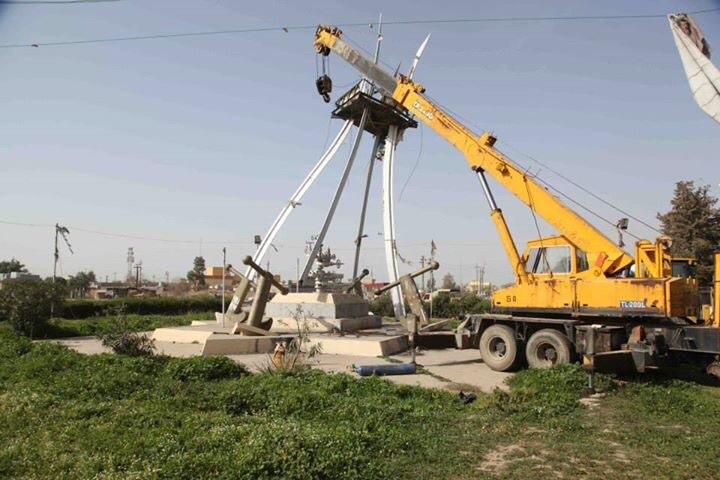
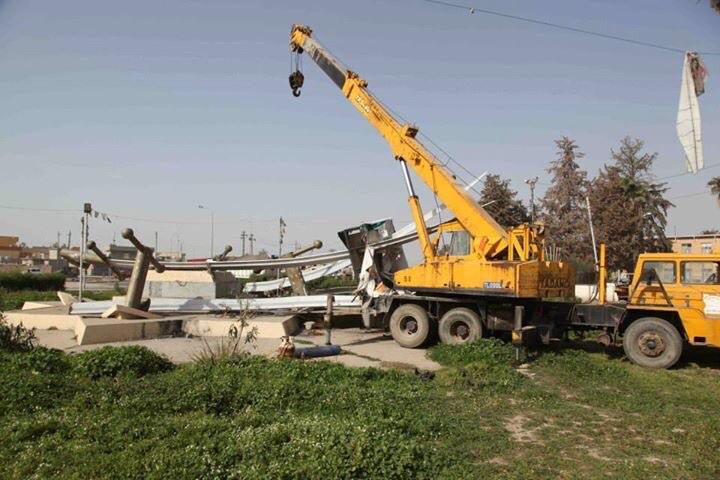
 “@umm_alabbas: Al Huwaysh near Samarrā the birthplace of our Khalifā Ibrahīm is liberated and in the hands of Islamic State. Alhamdullilah”
“@umm_alabbas: Al Huwaysh near Samarrā the birthplace of our Khalifā Ibrahīm is liberated and in the hands of Islamic State. Alhamdullilah”  "If you take out Saddam's regime I guarantee you it will have enormous positive reverberations on the region" - @
"If you take out Saddam's regime I guarantee you it will have enormous positive reverberations on the region" - @


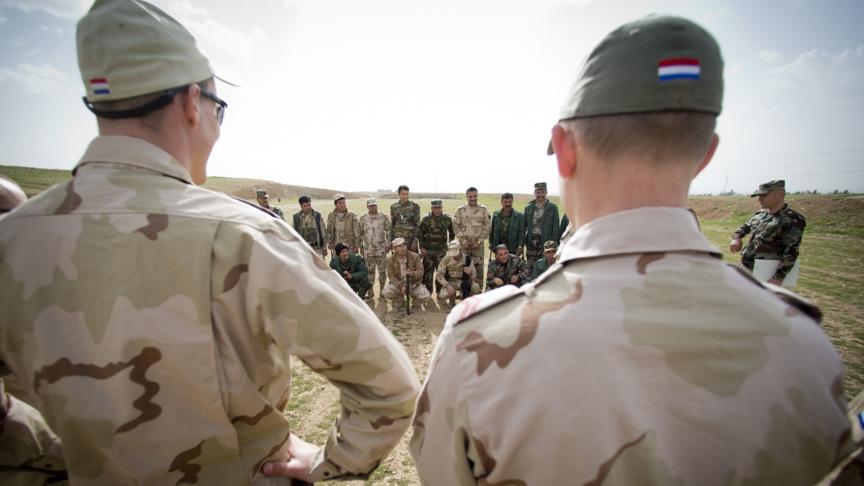
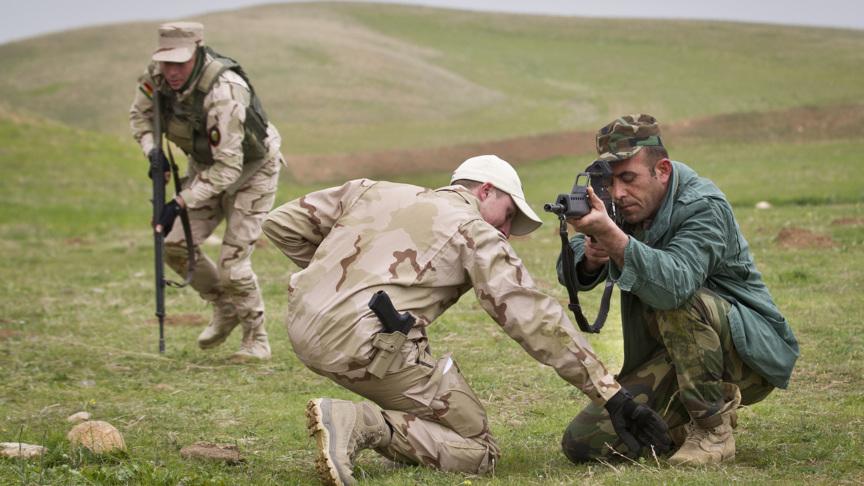
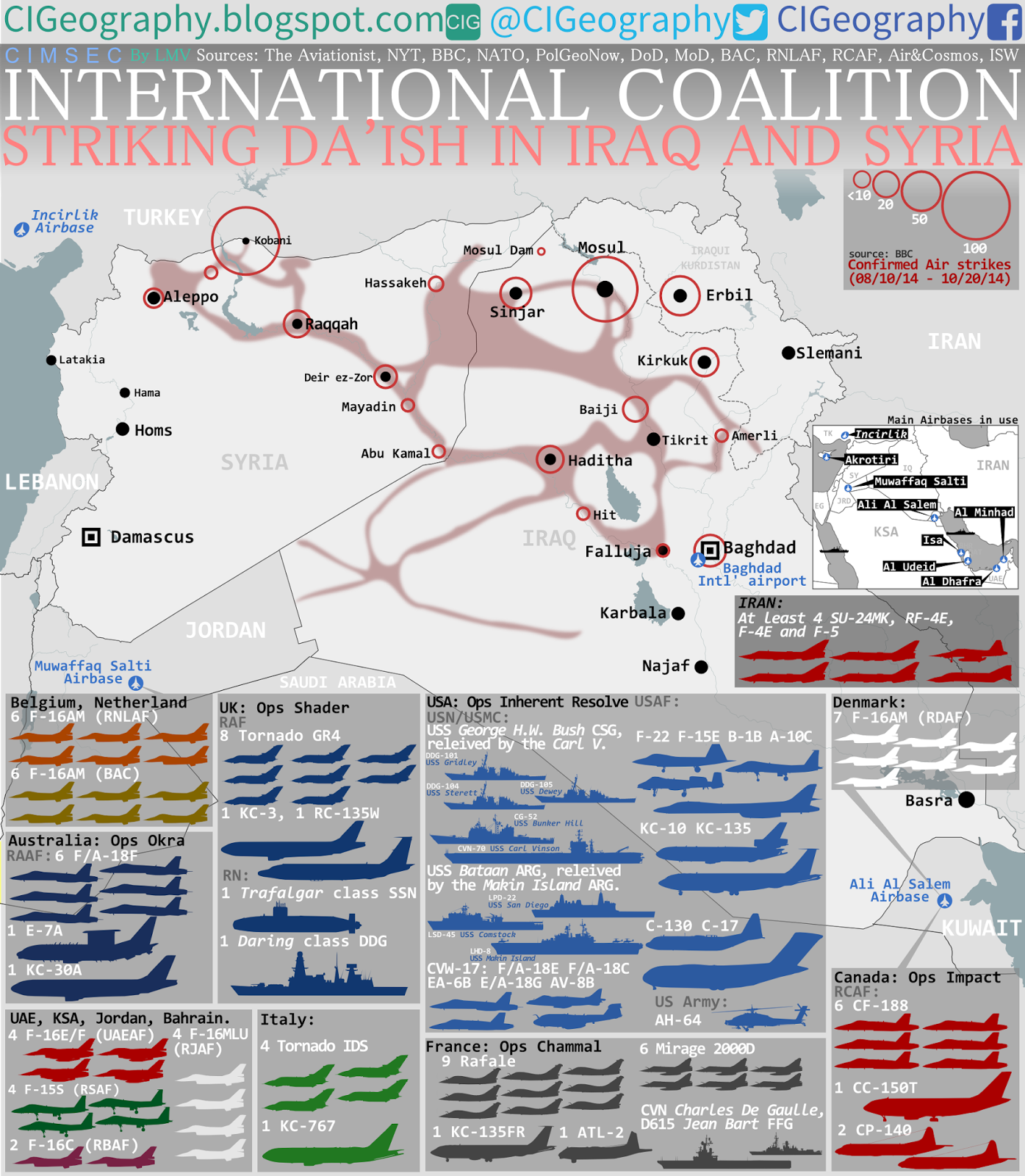
 Iraqi Police chief says ISIS burned to death 45 people in the western Anbar town of al-Baghdadi. (@yeh1a)”
Iraqi Police chief says ISIS burned to death 45 people in the western Anbar town of al-Baghdadi. (@yeh1a)”  Barzani:"Not one Shia militia will enter Kirkuk". he is right. Not one but hundreds. See video
Barzani:"Not one Shia militia will enter Kirkuk". he is right. Not one but hundreds. See video

